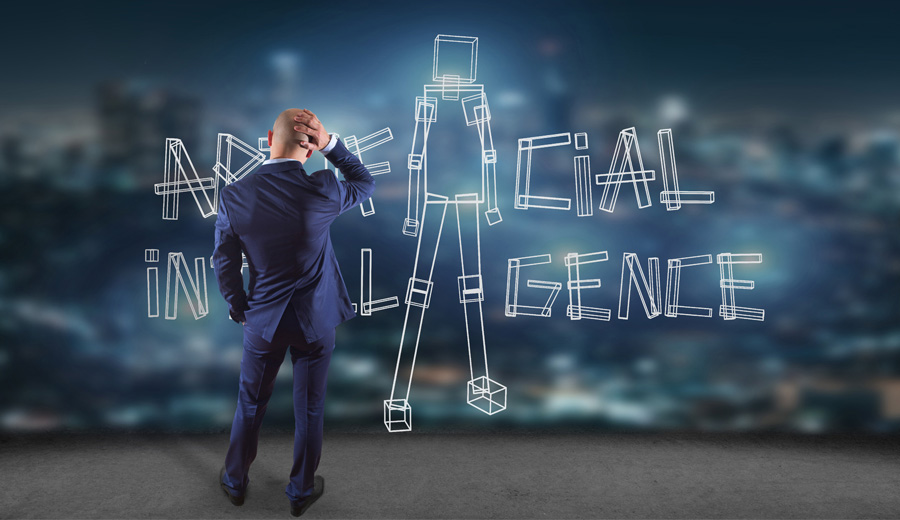
Why digital ethics will be a hot topic in 2019 and beyond
Technology will continue to advance this year and in the decades to come. We are always working harder and faster on new solutions that should help humans in their everyday life.
But with advanced technology comes big power. Therefore, we need to think about digital ethics better sooner than later. Otherwise, technology can bring risks and dangers.
The following article outlines what digital ethics is about and why we need to discuss it as private persons, companies and governments.
WHAT IS DIGITAL ETHICS?
Basically, ethics is a system of moral principles. Also described as moral philosophy, it helps people evaluate what is right or wrong. With ethics, often more questions than answers are provided.
There are several moral dilemmas coming with these questions. Frequently, there is not the one solution saying that something is totally right or completely wrong. This is what makes ethics very vague.
Digital ethics is as manifold as the advanced technology of today. Digital trends are currently artificial intelligence, big data, online media, cloud solutions and much more. Ethics focused on technology therefore need to be considered for all of them and even more.
Each technology has its own range of applications. Therefore, ethical questions differ. Nevertheless, digital moral principles deal with questions about how specific technology should be used. What is right or wrong when using it? How should it be developed? These two basic questions (and much more) are covered within digital ethics.
WHY IS DIGITAL ETHICS SO IMPORTANT IN 2019?
Leading companies are more and more dealing with digital ethics. The global advisory company Gartner for example named digital ethics as one of its top ten strategic technology trends in 2019.
There is even a digital ethics summit, which had over 300 attendees like academics, philosophers, lawyers, technology experts, policy makers and other key stakeholders in 2018. This demonstrates that there is enough stuff to discuss and many parties involved in digital ethics.
But why? Why should we spend our valuable time to discuss ethical topics, which are hard to answer? Well, new technology provides new ways to abuse this power. Let us have a look at the World Wide Web. Every company is online nowadays because their target groups are there too. Online marketing is the biggest instrument in marketing nowadays and the possibilities are endless.
You can track every single user online. These tasty cookies are just shortly installed at the user’s advice and companies can follow them around forever if they want. Following users discloses the target group’s psychology and their needs and wants. A nice method to explore how to approach the target group best and making them buy your product.
But with digital ethics, we need to ask ourselves: Where to draw the line? How much data are we allowed to collect? What is too private? These questions are for example answered with the DSGVO in Germany, which is a law that regulates and protects people’s data. But questions will never stop. With new developments, different questions will arise.
More digital ethical questions are currently rising with social media. How much freedom of opinion is allowed? Can people say everything they want online? What about negative reviews? How should companies deal with that?
And what about influencer marketing? Is it morally fine for companies to work with people having millions of followers and paying them to promote certain products? Since 2018, the topic of commercial identification even went to court. It is still not answered, in which cases influencers need to mark their posts as advertisements.
The ethical question behind this discussion is: In how far is it good to influence social media users without letting them know that they are being influenced?
Social Media is also a hot topic when it comes to the workforce. Should employees get in touch online with other employees, strategic partners or customers? The line between business and private seems to get blurred due to technology. Therefore, digital social behaviour rules need to be discussed.
DIGITAL ETHICS AND ARTIFICIAL INTELLIGENCE
Artificial intelligence is a totally different point. Here, digital ethics deal rather with questions like how to develop artificial intelligence instead of how to use it afterward. However, both sides of the coin are discussed.
How intelligent are robots allowed to be? What are they allowed to do? Should they have feelings and if yes, which ones? If they have feelings, what are we as humans allowed to do with them? Should they have human rights somewhere along the way?
Of course, these are some futuristic questions. But some of them are quite current. Digital ethics can always concern the impact of technology on humans. Is it morally fine to replace human workers with artificial intelligence? This is probably the most asked question in the production sector at the moment.
As we have seen, digital ethics create a lot of questions, which cannot be answered yet. Probably when we will find answers to some of them, new difficulties will occur. But this is the reason why digital ethics is so interesting for many people.
Digital ethics is as powerful as technology. It leads to new laws. If this topic fascinates you, you need to join the discussion at the Global Female Leaders Summit 2019.
Comments
No Comments
